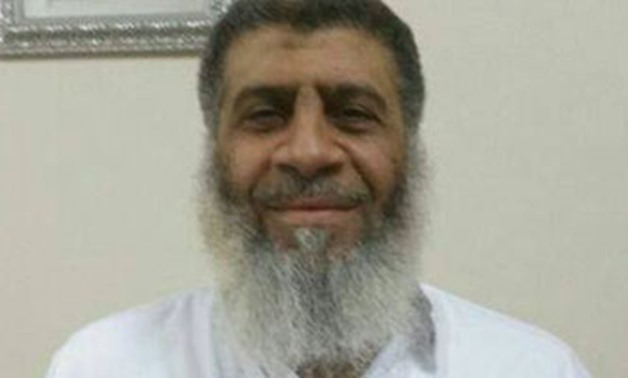
Prominent leader of Al-Gama'a Al-Islamiyya. file photo
CAIRO – 1 November 2017: The Muslim Brotherhood agreed with Islamist groups during their rule to use militant force before the June 30 revolution to protect ousted President Mohamed Morsi, stated Assem Abdel-Maged, a prominent leader of Al-Gama'a Al-Islamiyya.
“There is no revolution without force to secure it, so I submitted a request to the Muslim Brotherhood to create Revolutionary Guards from Islamist youth,” added Abdel-Maged.
The Muslim Brotherhood agreed a week before Morsi's ousting to cooperate on training the Islamic youth to carry out several terrorist attacks, indicating that there is a sharp division inside the brotherhood, added Abdel-Maged.
He also confessed that the aim of the sit-ins was mustering sprawling crowds of people that support Morsi to divide the army.
Abdel-Maged escaped to Qatar after receiving a life sentence in a case related to terrorism, as did Islamist scholar Yusuf al-Qaradawi, the head of the International Union for Muslim Scholars, who was sentenced to life imprisonment in May 2015.
Morsi was sworn in as the president of Egypt in June 2012; he faced mass protests against his ruling and the domination of the brotherhood group over high governmental positions.
While the Rabaa sit-in actually disturbed the lives of many of the district residents, the brotherhood and their supporters did not seem to care; even prominent Salafist preacher Yasser el-Borhami confessed that “the sit-in was actually an attempt to impose a new reality, even on Rabaa residents.”
The leader of Salafi ‘Al-Nour’ Party, Younes Makhyoun, said that the brotherhood leaders are the direct reason for their youth’s bloodshed, saying that while they were inciting the youth to come out, they were fleeing abroad and “were faking heroism.”
Qatar played a role in sheltering those terrorists as an attempt to destabilize the Arab countries and spread division amongst Gulf countries.
Qatar had bought bonds issued by Egypt in 2013, under Morsi's rule, in the Irish Stock Exchange (ISE) with the value of $5.5 billion and an interest rate varying between three and 4.5 percent. The last installment of the debt, with the value of $1 billion, was paid in July 2016 amid a dramatic decrease in foreign reserves resulting in the currency’s flotation in November of the same year.
Comments
Leave a Comment